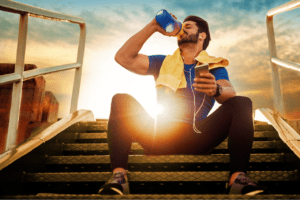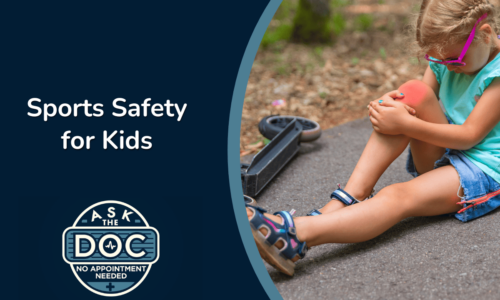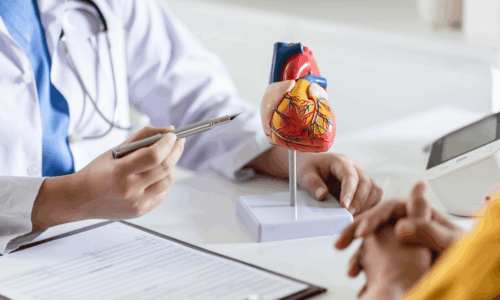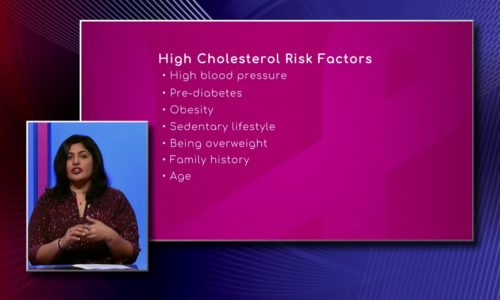Is it dangerous to exercise extreme heat? |

This summer has seen record breaking heat, particularly in the northeast part of the U.S. Based on news reports, this summer may set a record for heat-related illness and deaths also. Heat-related illnesses (e.g., heat cramps, heat exhaustion, heat syncope, or heatstroke) can develop when high temperatures overwhelm the body’s natural ability to dissipate heat. Despite the heat, many people try to maintain their exercise habits. With some modification of one’s exercise practices, this can often be done safely.
There are, however, times when exercising outside is not advisable. For example, if the temperature is above 80° F and the humidity above 80%, the body’s natural cooling system is severely impaired. Sweat evaporates very slowly, if at all, and the body heats up. Under these conditions the best choice may be to work out in an air conditioned gym, swim, or walk in a mall. If you must exercise outdoors in the summertime, the following suggestions will help make your experience safer and more pleasant.
- Slow Down. Exercising in the heat increases body temperature, which places an additional workload on the heart. For every degree the body’s internal temperature raises, the heart rate increases by approximately 10 beats per minute. By reducing your pace or speed, you will decrease internal heat production and moderate the increase in heart rate. If you are accustomed to using a heart rate monitor, you should pay attention to the heart rate rather than trying to maintain a certain pace or speed.
- Go early or late. Try to avoid exercising during the hottest part of the day in order to minimize thermal stress on the body. This usually means starting early or waiting until the sun is setting. Follow weather reports and be alert for heat warnings which could alter your plans for when or where you exercise. Whenever possible, select walking or running routes that include shade. Natural surface paths through a treed area are preferable to sun-exposed concrete or asphalt roads or trails.
- Drink, drink, drink. On hot days, drink fluids before, during, and after exercising. As a guide, drink around 16 oz. of water 20–30 minutes prior to exercise and 6–10 oz. every 30 minutes while exercising to help prevent dehydration. In most cases, plain water is an acceptable fluid replacement. For exercise sessions exceeding an hour or two, a sports drink that includes electrolytes may be a better choice. Monitoring your weight before and after exercising is one way of determining if you are drinking enough. A weight loss of one pound during exercise implies that you are behind in your hydration by approximately a pint.
- Get used to it. To some degree, the body is able to adapt to heat stress. Some of the changes that allow this to occur include an increase in perspiration rate, a reduction in the amount of sodium lost in sweat, and an expansion of the blood plasma volume. Acclimatization to the heat takes approximately 2 weeks during which time workouts should become gradually more strenuous.
- Dress the part. The choice of clothing when exercising in the heat has a major bearing on comfort as well as safety. Synthetic fabrics that “wick” sweat away help with evaporative cooling and are generally the best for exercising in the heat. Dark colors should be avoided since they absorb sunlight and heat. A light colored, wide-brimmed hat will help keep the head cooler. Sunglasses don’t help keep us any cooler but they do provide protection against harmful ultraviolet rays. The other thing to remember to “wear” is sunscreen.
When exercising in hot or humid conditions, heat-related illness can occur in spite of taking precautions. Heat-related illnesses include heat cramps, heat exhaustion, and the most serious form, heat stroke. Signs to watch out for include muscle cramps, dizziness, nausea, and rapid heart rate. Should any of these occur, stop exercising, rehydrate, and seek a cooler environment immediately. Certain medical conditions or medications can make heat-related illness more likely to occur.
If you have any more questions just Ask Hanna, our health advisors are here to help.
Image: ©Shutterstock / Ivanko80








